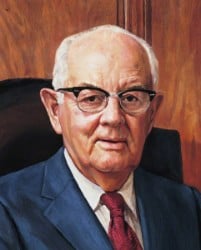
“Any excuse, no matter how valid, always weakens character.”
LDS Quotes on Character

“Any excuse, no matter how valid, always weakens character.”
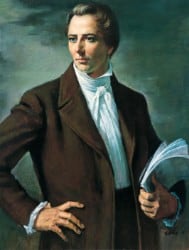
“If men do not comprehend the character of God, they do not comprehend themselves.”
| Teachings of the Prophet Joseph Smith, Chapter 2
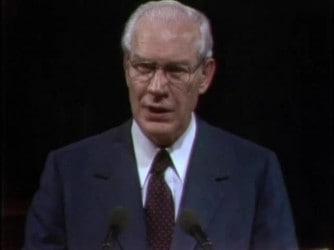
“In the temple, through the power of the Holy Spirit, knowledge is transformed into virtues. A person who attends the temple regularly grows more patient, more long-suffering, and charitable. He becomes more diligent, more committed, and more dedicated. He develops a greater capacity to love his wife and children and to respect the good qualities and the rights of others. He develops a greater sense of values, becoming more honorable and upright in his dealings and less critical of others. In the temple knowledge is transformed into feelings of the heart, resulting in actions that build character. Thus, the family is strengthened and the community is uplifted to the extent of his influence”
| Temple in the Last Days, p. 53

“Nearly all men can stand adversity, but if you want to test a man’s character, give him power.”
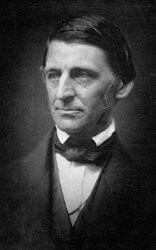
“The only way to have a friend is to be one. A friend is a person with whom I may be sincere. Before him I may think aloud. Happy is the house that shelters a friend. A friend may well be reckoned the masterpiece of nature. Let the soul be assured that somewhere in the universe it should rejoin its friend, and it would be content and cheerful alone for a thousand years.”
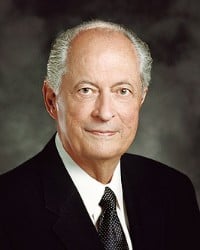
“The attributes of the Savior, as we perceive them, are not a script to be followed or list to be checked off. They are interwoven characteristics, added one to another, which develop in us in interactive ways. In other words, we cannot obtain one Christlike characteristic without also obtaining and influencing others. As one characteristic becomes strong, so do many more.”
| Becoming a Disciple of Our Lord Jesus Christ
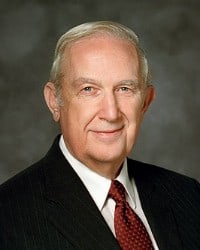
“One of the most powerful sources of personal development will come through the urgent prayers you offer in faith for a foundation of righteousness. You will learn much as feelings distill in your mind and heart. Avoid prayers that appear to be a set of instructions to the Lord – do this, bless that, change this, help me with that. Rather, be a compliant student to the Ultimate Teacher. He wants you to succeed even more than you do yourself.”
| BYU Devotional
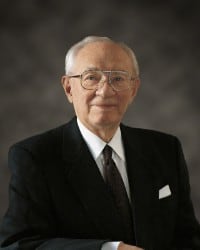
“The decisions we make, individually and personally, become the fabric of our lives. That fabric will be beautiful or ugly according to the threads of which it is woven. I wish to say particularly to the young men who are here that you cannot indulge in any unbecoming behavior without injury to the beauty of the fabric of your lives. Immoral acts of any kind will introduce an ugly thread. Dishonesty of any kind will create a blemish. Foul and profane language will rob the pattern of its beauty.”
| "This Work Is Concerned with People," Conference, April 1995
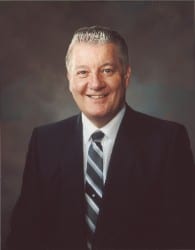
“Let me spend a moment on an item that I think a great many people, particularly members of the Church, do not understand. A lot of our people–including a lot of you–have great amounts of faith but sometimes tend to distort that faith a little by saying, “I am not going to move until I receive a positive assurance”–a burning in the bosom, as it were–“that that is the right thing to do.”
“You are all familiar with the scripture where Oliver Cowdery was trying to translate and could not do it. The Lord explained that Oliver had to figure it out himself, and if it was right He would give him a burning in his bosom; and if it was wrong he would have a stupor of thought. Many people say, “I am not going to move because I do not have that burning in my bosom. I am not positive about this, that, or the other . . . .” Too often we want to be positive about everything. We feel that we need to have this burning all the time. Often people say, “I am confused. I don’t know what to do”–and so they end up treading water and not doing anything, not making any real progress–and that, in and of itself, is a great sin. We should not do things wrong–and, as I said before, the Lord will let you know when things are wrong–but, for heaven’s sake, we should do something! This lengthening of our stride and quickening of our pace about which our modern-day prophet, the Lord’s spokesman, talks so much cannot happen if we are standing still. We must be moving, and we should be moving in the right direction.
“Let me tell what I have discovered–and this is somewhat repetitious. I do not say that we will not get that burning in our bosom, for we will when it is the right thing. In my life there have been quite a few occasions where there was absolutely no question about it–that burning was there. For instance, I have had the experience of installing stake presidents when there was absolutely no question, when I was positive that “that is the man to be the stake president now.” It has happened in other situations also, but generally it has worked the other way–that is by eliminating the wrong directions to reveal the right direction, especially concerning our opportunities for progress in life in what we often term the temporal sense. We must try to figure it out ourselves. In the past I have tried out whether I should go into business or into teaching or into the arts or whatever. As I have begun to proceed along one path, having more or less gathered what facts I could, I have found that if that decision was wrong or was taking me down the wrong path–not necessarily an evil one, but one that was not right for me–without fail, the Lord has always let me know just this emphatically: “That is wrong; do not go that way. That is not for you!””
| What is Your Mission, BYU Devotional Address, May 1979

“Prayer, in the homes of this and other lands, is one of the simple medicines that would check the dread disease that has eroded the fiber of our character. It is as simple as sunshine and would be as effective in curing our malady. We could not expect a miracle in a day, but in a generation we would have a miracle.”
| “Be Thou an Example”